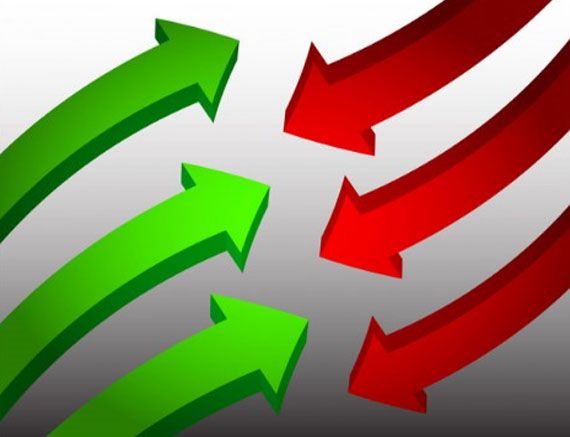
- MedHelp, the world’s largest health social network and leading provider of consumer health applications, today (September 26, 2011) announced that the average mood across the United States is the worst it has been in the last year. Using data points from MedHelp’s online and mobile health applications, MedHelp recently saw a significant drop in the average mood across the country, from average to bad.
- According to a recent CBS/New York Times Poll, 72% of those questioned by the Roper Public Opinion Polls said the country was going in the wrong direction.
- And recently a Goldman Sachs report of September, 2011, said the world economy was moving toward not great depression, or recession, but a great stagnation.

Ron Kurtz, founder and CEO of the Affluence Research Group, understands this complicated picture, and has recently said in personal communication, "Most times there is some correlation between the general consumer confidence index of The Conference Board and the mood/confidence of the affluent, as measured in our twice-yearly tracking studies of the wealthiest 10% of U.S. households. They both tend to move in the same direction, especially in terms of describing current business conditions. The mood of the affluent seems to be more influenced by what is happening in the stock market rather than actual economic or business conditions. The wealthiest 1% (1.1 million households with a minimum $6 million net worth, based on research by the Federal Reserve Board) are usually more confident and optimistic about the future than the general public. Among the wealthiest 10%, there are often some differences between groups defined by age, gender, income, or net worth."
Dr. Kurtz’s last two sentences dealing with the wealthiest 1%, the UHNWs (Ultra High Net Worths) and the wealthiest 10%, the HNWs (High Net Worths), sheds light on the division between mood and spending as seen in some recent numbers.
On one side of the luxury argument, and most likely where the HNW 10% lies, there may indeed be some recession-based anxiety, as this is probably the first time in many years this group has heard that no investment is safe in these capricious times, given the cooling of the world economy, how badly in debt the U.S. is, and how Europe is handling its credit/debt crisis.
Adding fuel to this anxiety are articles on new spending patterns for all economic levels, including the most wealthy: The Dollar Store Economy (August 21, 2011) is taking hold says The New York Times, and the Wall Street Journal’s cover piece, The Frontier Of Frugality (October 4, 2011).

On the more optimistic 1% UHNW side, are the sales stats of classic luxury products. Tiffany’s net sales rose 30% in 2011 over the prior year, and according to Bloomberg News, the highest end luxury car manufacturers had much to say at the September 2011 Frankfurt Car Show, with many attitudes counter to the prevailing economic climate.
- "If you go to the Ferrari stand, there aren’t any customers worried about the recession," Fiat Chief Executive Officer Sergio Marchionne said. Ferrari expects to deliver 7,000 cars in 2011 on demand for its first family car, the $356,000 four-seat FF that came to market this year.
- Maserati aims to boost deliveries nearly eightfold to 45,000 cars in 2014 as it increases dealers by 150 percent worldwide. Lamborghini SpA’s new Aventador model is sold out for 18 months.
- Rolls-Royce Cars recently announced a 10 million-pound ($15.8 million) expansion at its Goodwood, England plant.
- Sales of the main high-end European luxury brands - Maserati, Lamborghini, Ferrari, Bentley, Rolls-Royce and Aston Martin - will rise between 19% and 30% percent this year and gain another 13 percent in 2012, according to a forecast from industry analyst IHS Automotive.

And in addition, according to Reuters (October 2, 2011) French luxury goods maker Hermes sees no sign yet of affluent buyers tightening their purse strings in spite of a somber global economic outlook, the head of the brand said on Sunday at Paris Fashion Week.
So, what is happening? What is the relationship between a somber economic outlook and the open purse? It may depend on who is buying, how seriously they believe they are an actual part of the global economic whole, and what the results will be when developing economies are experiencing strong growth while advanced economies are in a sluggish mode — this experience being in opposition to what has been customary in past years.
The highest end, which now comprises many newly minted BRIC (Brazil, Russia, India and China) young millionaires, or as Reuters says, "the strong appetite in emerging markets," have allowed the luxury goods industry to grow at a solid pace. But what about tomorrow? That is the question.
"For the moment, there is no impact on our sales," Hermes Chief Executive Patrick Thomas told Reuters at the brand's fashion show in Paris, recently. "But the fact that we see nothing today, does not mean that we will not see anything tomorrow. When there are moments of macroeconomic concern, they always tend to affect our markets." ...Stay tuned.
Photos courtesy of MedHelp, Aston Martin and Hermes









